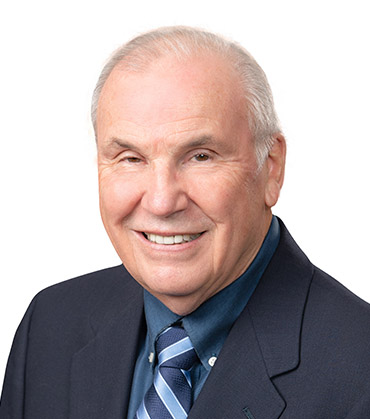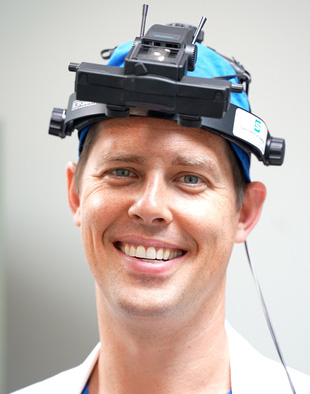Glaucoma is the third-leading cause of irreversible blindness, only outpaced by macular and retinal diseases. In fact, the disease has caused over 4.5 million people around the world to lose their sight permanently — a staggering number considering that with early detection, glaucoma can be prevented from progressing.
Some 90% of glaucoma cases go untreated until it’s too late. In India, over 12 million suffer from this disease, and 10% of them have already gone blind.
Why does glaucoma cause so many people to lose sight? The short answer is glaucoma is hard to detect.
What is Glaucoma?
Glaucoma is a progressive eye disease that occurs when the normal fluid pressure inside the eyes slowly rises. This can cause damage to the optic nerve and results in vision loss and blindness. Some people are more prone to glaucoma due to their eyes’ drainage system not working properly. In some cases, fluid builds up in the eye, which though painless, causes excess pressure on the optic nerve at the back of the eye.
Once the optic nerve is damaged, it begins to deteriorate, a process that happens more quickly with time. It is at this point that blind spots can begin to develop, signaling that you have already lost some of your vision. The symptoms leading up to this point tend to be very minor.

Warning Signs of Glaucoma
You might have glaucoma and not even realize it because the early symptoms tend to be easily dismissible. For this reason, it’s important to educate yourself on the warning signs of glaucoma so that you know when to seek help. Warning signs include:
- Blind spots in your vision
- Redness in your eyes
- Pain in your eyes
- Frequent headaches
- Seeing rainbow-colored circles around lights
- Sensitivity to bright lights
The only way to know for certain if you have glaucoma is to make an appointment with your eye doctor for a special examination. If glaucoma is detected early, your vision could be saved.
Can Glaucoma Be Cured?
Any vision loss caused by glaucoma is completely irreversible, meaning it cannot be cured. Thankfully, early detection of glaucoma can help save your sight and prevent further vision loss.
Lowering intraocular pressure is critical to managing glaucoma. This may involve oral medications, eye drops, or laser surgery, among other things. If you think you have glaucoma or want to be certain you don’t, be proactive and make an appointment with your eye doctor right away.

Glaucoma Specialist
-
 Zsolt Bansagi, M.D.Cataract and Refractive Specialist
Zsolt Bansagi, M.D.Cataract and Refractive SpecialistDestin and Panama City, FL
-
 JOHN BELL, M.D.General Ophthalmology and Cataract Specialist
JOHN BELL, M.D.General Ophthalmology and Cataract SpecialistTallahassee, FL
-
 Richard W. Bryant, M.D.Facial Cosmetic & Orbital Reconstructive Surgeon
Richard W. Bryant, M.D.Facial Cosmetic & Orbital Reconstructive SurgeonDothan, AL and Destin, FL
-
 John Fortin, M.D.Retina Specialist
John Fortin, M.D.Retina SpecialistDothan and Andalusia, AL
Destin, FL -
 Marnix Heersink, M.D.General Ophthalmology and Cataract Specialist
Marnix Heersink, M.D.General Ophthalmology and Cataract SpecialistDothan, AL
-
 Marius Heersink, M.D.Cataract, Refractive and Laser-Vision Correction Specialist
Marius Heersink, M.D.Cataract, Refractive and Laser-Vision Correction SpecialistDothan, AL
-
 Sebastian Heersink, M.D.Cataract, Refractive and Cornea Specialist
Sebastian Heersink, M.D.Cataract, Refractive and Cornea SpecialistDothan, AL
-
 Austin Henkel, M.D.Cataract and Refractive Specialist
Austin Henkel, M.D.Cataract and Refractive SpecialistDestin, FL
-
 Anthony Leoncavallo, M.D.Glaucoma and Cataract Specialist
Anthony Leoncavallo, M.D.Glaucoma and Cataract SpecialistDestin and Panama City, FL
-
 Irene Ludwig, M.D.Pediatric Ophthalmology & Strabismus Specialist
Irene Ludwig, M.D.Pediatric Ophthalmology & Strabismus SpecialistDothan, AL
Destin & Panama City, FL -
 Mary Kate Moring, O.D.Optometrist
Mary Kate Moring, O.D.OptometristDothan, AL
-
 Douglas Owens, M.D.Cataract and Glaucoma Specialist
Douglas Owens, M.D.Cataract and Glaucoma SpecialistMontgomery, AL
-
 Harsha Sen, M.D.Retina Specialist
Harsha Sen, M.D.Retina SpecialistDothan, AL
-
 Ron Swendris, M.D.Cataract and Glaucoma Specialist
Ron Swendris, M.D.Cataract and Glaucoma SpecialistDothan and Andalusia, AL





